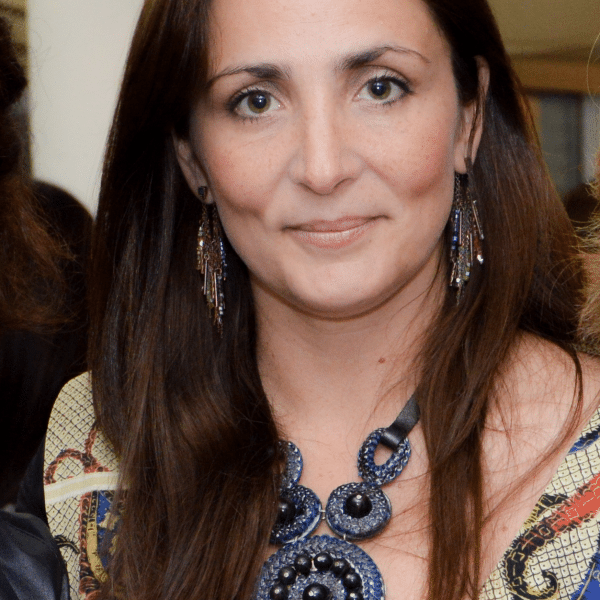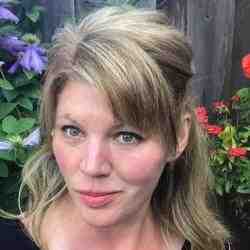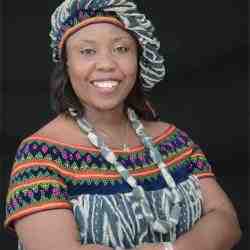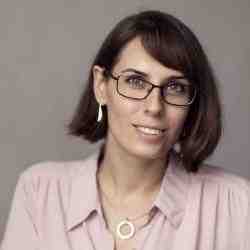Introduction
Child sexual abuse is a huge problem with consequences that affects everyone in Argentinean society. Talking about the issue has been taboo but Paula has been able to break down the barriers and change the societal mindset to promote a childhood free of violence.
The New Idea
Over the past three years Paula has catalyzed a fundamental change in how Argentina treats childhood survivors of sexual abuse and violence. With her visionary leadership Argentina substantially strengthened the professional qualifications required for diagnosing and treating these victims and changed a legislative framework heavily tilted against recognizing the rights of people to report and seek redress for being exposed to childhood sexual violence. Today Argentina is the only country in the world that has outlawed the use of a pseudo-scientific formulation called Parent Alienation Syndrome that had been used routinely in courts of law in Argentina (and still permitted in places like the US and other countries in the world) to discredit plaintiffs coming before a court to seek redress. And in Argentina there is no longer a restrictive statute of limitations limiting the amount of time you have to report such a crime. In addition, Paula has built a community of support and resources round survivors and their families to help them move forward with their lives. Now, Paula is working towards building a culture of positive parenting through tools and training to eliminate the culture of physical punishment and abuse within the household, as well as creating an online database that will serve as a human rights index for Argentina on this issue.
The Problem
Sexual abuse occurs in the shadows and is most frequently experienced within the family. A recent UNICEF report indicates that seven out of ten girls between 15 and 19 years old have experienced physical and/or sexual abuse but have not told anyone or reached out for help. Children and adolescents tend not to speak up about abuse due to feelings of guilt and shame, or due to mistrust and fear of the abuser. This silence is compounded by an overall acceptance of violence as punishment within homes. At a societal level, discussing sexual abuse is seen as a taboo and consequentially, survivors do not report the crime and perpetrators usually go unpunished. If a survivor and family are willing to go public, they find themselves lonely and isolated from society – regardless of their socio-economic position. This isolation prevents survivors and families with this experience from finding and supporting each other.
From a macro perspective, there are also deep gaps in the practices and legislation surrounding the prosecution of sexual abuse charges. Those who are attempting to address this – by reforming policy or by working directly with survivors – are not coordinated and many provide overlapping services in some areas with gaping holes in others. In addition, there is inadequate training for professionals in the judicial, social and health system for working with survivors of abuse. The use of Parental Alienation Syndrome in abuse cases has also been a recurring practice despite the lack of clarity as to the ethics surrounding it and the fact that it has most often been used to invalidate the proof of violence or sexual abuse, working to the disadvantage of survivors. While conducting her research, Paula also discovered that the limited statute of limitations on abuse cases left most survivors – who take ten to fifteen years to report a case on average – unable to pursue charges. It is evident that there are a number of structural and cultural barriers to transforming how sexual abuse is viewed, discussed, punished and prevented in Argentina and is Paula rapidly building the architecture and the momentum for tackling them.
The Strategy
With an understanding that this is a deeply embedded and complex problem to address, Paula works to unblock key barriers at multiple levels of society.
Her most direct strategy involves working with survivors and families of survivors to create a supportive community and a set of best practice resources for those working with them. Through this program, called Red por los Chicos, Paula has supported 53 families from across the country in the last three years to ensure they find a pathway out of an abusive situation and towards healing. This program is focused on women facing abuse in their household and supports their journey in resuming their place as a protective adult and caretaker towards their children. Of these, twenty women pursued cases, stopped contact with the abuser and began therapy for them and their children. 98% of the women that had lost custody of their children regained it after participating in this program. She is now working with the Office of Women’s Affairs to train women in their department to conduct this work moving forward. More broadly, Paula also works with those adults playing the protector role or helping to intervene or file a case in an abusive situation, to ensure that these adults are well informed and can move from a passive into an active role in finding resolution. To this end, she has created a Resource Guide that was developed in partnership with the Canadian Fund for Local Initiatives. This guide is based on Paula’s own experiences and research and from the lessons from working with these families to date. In only five months since it’s publication, the guide has been downloaded more than 15,000 times. She recently received funding to have it updated so as to reflect the new changes in policy that Paula enabled.
A fundamental element of Paula’s work is to address the gaps in practices and legislation surrounding sexual abuse and violence. Her first efforts were to tackle the frequent use of Parental Alienation Syndrome (PAS) when trying to defend the abuser. In these cases, PAS is used as a legal tactic in which children are separated from their parents in order to reduce the survivor’s confidence in standing up against the offender in an already difficult situation. By pulling together a team of researchers that investigated up to sixty cases in which PAS was used, she demonstrated how PAS is an ethically questionable and scientifically invalidated practice that is rejected for the most part in international courts of law. She brought this momentum to a head when she organized the first day of awareness around PAS for the General Attorney’s office, bringing together stakeholders from across the justice system and the psychological field to understand the research. As a result of her actions, the Senate outlawed the use of PAS in all family cases in Argentina and the Professional Association of Psychologists of Argentina discredited its practice in court cases related to sexual abuse and violence. The Executive Branch also made available the budgetary and staff resources to institutionalize the ban of this practice. Given the length of time it takes for a survivor to speak up about abuse, Paula also brought together legislators and lawyers to draft new law allowing for cases of abuse to be brought forward indefinitely and for the survivor to still be able to seek redress in a court of law. This law was passed unanimously in both chambers in the last session before the presidential elections. This work was a function of both Paula’s work to bring politicians on board but also to drum up mass support from the ground up through public campaigns and sustained advocacy work through a change.org petition and work with other civil sector organizations.
At a broader level, Paula also saw gaps in civil code as it regards to children and parenting. With an upcoming new Civil Code in August 2015, Paula saw an opportunity to bring together legislators and CSOs with regard to two specific matters relevant to sexual abuse. The first is the right of the child to be heard – not just before the judge but in how the investigation is conducted and the process itself. Adolescents, from 13 years old and up, now must give their consent for certain medical treatments or to leave the country, in addition to the buy in from both parents. This ensures that the child has a voice in the process. To this end, Paula is working with the government to rebuild the role of the Children’s Advocate in family cases, building protocol along with the budgetary support to ensure that this law can be implemented fully. This will go a long way especially in ensuring that the child does not need to come into contact with the abuser during the process and thereafter. The second is the banning of all physical violence/punishment against children, which was allowed for in the previous code. A recent UNICEF report shows that while 96% of parents do not believe in physical punishment to discipline kids, but a lack of other methods means that 66% of parents continue to use it. Now, with this new code in place, Paula sees further opportunity to bring about a new approach to positive parenting. She is currently working with parents to pull together a set of tools and training so that they can exercise violence-free parenting, effective conflict resolution, and build their family unit as a team with everyone playing a role to strengthen and care for it. Paula is borrowing from the research of the University of Queensland in Australia where she studied, which has the largest international program focused on this topic with research based on evidence from twenty different countries. Paula believes that this new approach to parenting is critical in the long run to reducing the culture of violence within homes and forms of abuse against children.
Paula also works in international spaces dedicated to this issue so as to ensure that Argentina has practices, legislation and CSO and government services that meet international standards. She has signed an agreement to work with the European Council for the Eradication of Violenece Against Children and with the National Society for the Prevention of Cruelty to Children to translate the US “underwear rule” to the Argentinean context. She is frequently a specialist on panels such as BBC 100 Women, WWSF and ONU Women. She is now working towards collecting data from survivors so as to create an online platform with a Human Rights Index around this issue – tracking things like basic numbers on incidences (even if not reported), reported cases, sentencing etc.
The Person
Paula grew up in a conservative, well-off family, that did not give her the support she needed to develop in her youth.
At 15, she joined the distinguished Foundation at the Bank of Boston, in which youth leaders were put in charge to create and search for solutions to problems. At 17, she participated in a Junior Achievement course, where she developed her own innovative business model. She won first prize for her efforts and because of it, received a scholarship to attend a course at Northwestern University for a few months.
While at the University, Paula along with other Fellows founded an investigative team, which created a project that was selected by the Foundation for Economic Education. When she returned to Argentina, enriched by the experiences at Northwestern, she began her studies for in Economics while also working for a project in which she created a new economic and business journal: INFOBAE. In less than eight months, she became the subeditor of a section of the annual editorial Economics and Finances.
At 23, Paula married and found that was too hard to continue traveling and working. For a few years she focused on raising her children, but discovered that her marriage was no longer working due to abuse and violence. In 2007, she finally understood that she was a victim of violence and decided to separate from her husband. In the beginning the economic retaliation was hard, and it ended up escalating progressively to the point of their daughters being abused.
With this, Paula started a tenacious battle. Her experience connected her to other women and eventually turned her violent past into a fight for a future. It was this that made her want to work towards the eradication of violence against children across the country.
To sustain herself economically, Paula returned to a professional career. Since 2013 she has worked with Thonet & Vander, in which she has developed their expansion strategy in European markets. Thus far, she is responsible for 30 new markets created. She has also helped restructure the way in which the company organizes itself. She has developed a new business model that allows for a 30 percent reduction in operating costs. However, she is ready to move fulltime on working towards her goal of the eradication of violence against children, beginning with sexual abuse.




